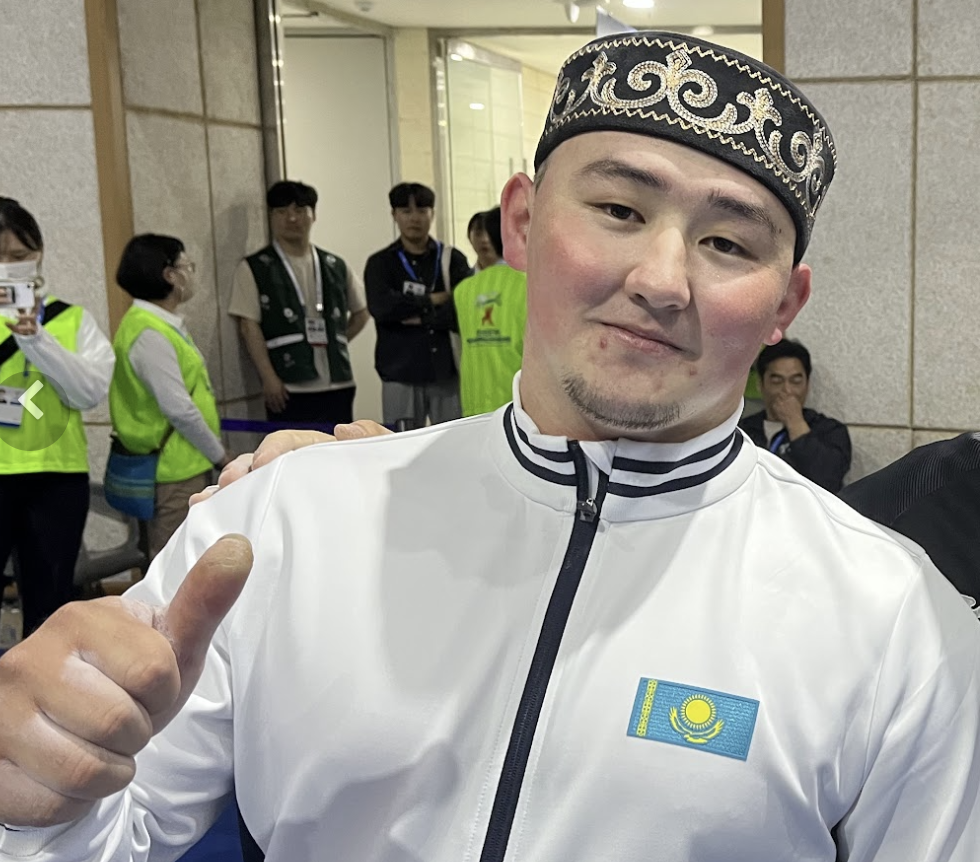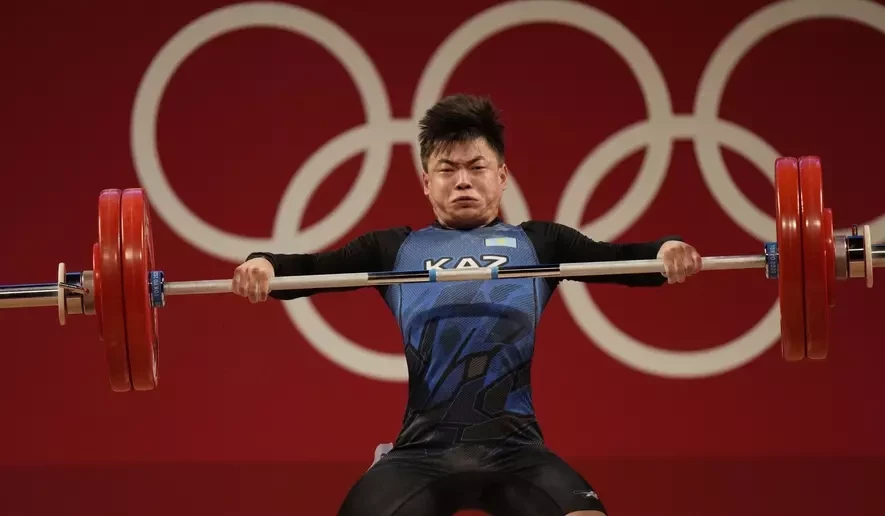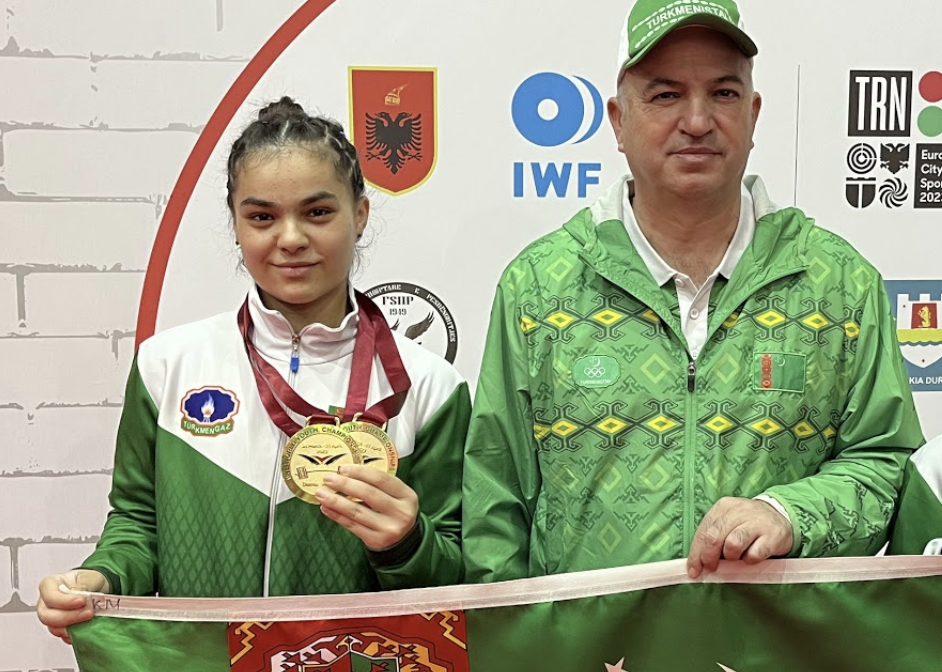Doping
06.07.2023
Kazakhstan weightlifters face Paris 2024 ban after latest doping scandal

-
Members of the discussion:
-
Last reply:
Five members of Kazakhstan’s team at the Asian Weightlifting Championships in May, including a gold medallist who heads the rankings for next year’s Olympic Games in Paris, have been provisionally suspended after their samples came up positive for a banned substance.
Four more team members, all teenagers who were tested out of competition in April, are also suspended, according to reports in Kazakhstan.
These nine all came up positive for SARMS (selective androgen receptor modulators) S-23, which is popular with bodybuilders because it mimics the activity of testosterone and can provide muscle mass growth.
The 102 kilograms Asian champion Nurgissa Adiletuly was additionally positive for the stimulant 5-methylhexan-2-amine.
Federations with three or more doping violations within a year can be suspended under Article 12 of the sport's anti-doping rules for up to four years and fined up to $500,000, depending on the deliberations of an independent panel which will be called into action once the cases are closed.
Under the rules of the Paris 2024 qualifying system, nations with three or more doping violations during the period between July 2021 and July 2024 are automatically excluded from the Olympics.
The Kazakhstan Weightlifting Federation (WFRK) has said it will ask for B-samples to be analysed, and if it contests any of the findings the closure of these cases could be many months away.
Kazakhstan had entered two of the suspended athletes in the International Weightlifting Federation (IWF) World Championships before the International Testing Agency (ITA) published an updated list of doping violations yesterday.
None of the nine athletes suspended by the ITA or national authorities is now among the entries for the World Championships in Riyadh in Saudi Arabia in September, for which final entries are due to be announced tomorrow.

Nurgissa Adiletuly, winner of the 102kg at the Asian Championships, is among the weightlifters from Kazakhstan to test positive for banned drugs ©ITG
Four more team members, all teenagers who were tested out of competition in April, are also suspended, according to reports in Kazakhstan.
These nine all came up positive for SARMS (selective androgen receptor modulators) S-23, which is popular with bodybuilders because it mimics the activity of testosterone and can provide muscle mass growth.
The 102 kilograms Asian champion Nurgissa Adiletuly was additionally positive for the stimulant 5-methylhexan-2-amine.
Federations with three or more doping violations within a year can be suspended under Article 12 of the sport's anti-doping rules for up to four years and fined up to $500,000, depending on the deliberations of an independent panel which will be called into action once the cases are closed.
Under the rules of the Paris 2024 qualifying system, nations with three or more doping violations during the period between July 2021 and July 2024 are automatically excluded from the Olympics.
The Kazakhstan Weightlifting Federation (WFRK) has said it will ask for B-samples to be analysed, and if it contests any of the findings the closure of these cases could be many months away.
Kazakhstan had entered two of the suspended athletes in the International Weightlifting Federation (IWF) World Championships before the International Testing Agency (ITA) published an updated list of doping violations yesterday.
None of the nine athletes suspended by the ITA or national authorities is now among the entries for the World Championships in Riyadh in Saudi Arabia in September, for which final entries are due to be announced tomorrow.

Nurgissa Adiletuly, winner of the 102kg at the Asian Championships, is among the weightlifters from Kazakhstan to test positive for banned drugs ©ITG
The out-of-competition tests were conducted by Kazakhstan’s national anti-doping authorities rather than the ITA.
The ITA, which carries out all anti-doping procedures for the IWF, has also provisionally suspended weightlifters from Albania, the Seychelles and Turkmenistan, one of them for a SARMS substance.
In the past two years 10 weightlifters from three continents have been suspended for doping violations involving SARMs.
Before that, the substances never appeared once in IWF anti-doping records that date back to 2003.
Those from Kazakhstan who tested positive at the Asian Championships in Jinju in South Korea in May are Adiletuly, 22; Arli Chontey, 30, winner of the bronze medal at 55kg; Lyubov Kovalchuk, 22, fourth in the women’s super-heavyweights and who stands eighth in the Olympic rankings. Andas Samarkanov, 21, third at 109kg; and Artyom Antropov, who finished one place ahead of Samarkanov and whose offence had already been announced by the ITA.
Two of those suspended by the ITA had already been provisionally banned on May 18 by their own National Anti-Doping Organisation (NADO) because of the April tests — Chontey and Adiletuly.
The four teenagers reported to have been positive for SARMS S-23 are 18-year-old Ekaterina Alyakina, eighth in the women’s 55kg in Jinju; Alina Koliushko, 17, 13th at 59kg; Denis Poluboyarinov, 17, ninth at 96kg; and the World Championships bronze medallist Alexey Churkin, 19, third at 73kg and who stands third in the Paris 2024 rankings.
In a statement to local media before the ITA announcement, the WFRK promised it would hold an investigation into the multiple national-level doping violations.
It was adhering to its policy of "zero tolerance" for doping, it said, in creating a commission for the investigation, which would look into two possibilities — "the careless use of contaminated sports nutrition and the intentional use of doping by athletes".

Kazakhstan's Olympic bronze medallist Igor Son has already banned for eight years after a positive drugs test ©Getty Images
There are also plans for a new organisational structure at the WFRK, with an emphasis on anti-doping work.
"Let us remind you that between the WFRK and the National Anti-Doping Centre of Kazakhstan, a Memorandum on Cooperation aimed at strengthening anti-doping discipline and identifying all cases of doping in weightlifting was signed," the statement said.
Kazakhstan’s anti-doping authorities and its National Sports Committee “take the initiative to conduct out-of-competition doping controls and anti-doping seminars among the athletes of the national team on a systematic basis”.
Earlier this year Igor Son, winner of an Olympic bronze medal at Tokyo 2020 in the men's 61kg, was banned for eight years after the NADO found him positive for an unspecified substance in an out-of-competition test.
Son had been suspended for two years in 2015 when he tested positive for methandienone after winning gold — which he later forfeited — at the IWF World Youth Championships.
Kazakhstan has a very poor historic doping record and forfeited four Olympic gold medals at London 2012 when stored samples were reanalysed.
Ilya Ilyin, who lost gold medals at Beijing 2008 and London 2012, spoke last week of athletes being "just a part of the system" when they are caught for doping.
He was speaking after the death of his former team-mate Vladimir Sedov, one of two male members of Kazakhstan’s national team who took their own lives following 25-year-old Albert Linder in September 2021.
Turkmenistan has also had three doping violations this year and, like Kazakhstan, faces an outright ban from Paris 2024 as well as sanctions under Article 12 of the anti-doping rules.
Ogulgerek Amanova, who was among the preliminary entries for the World Championships but cannot now compete, tested positive for methasterone on May 18, five weeks after her younger sister Amine was provisionally suspended when the same substance was found in her sample.
Ogulgerek is 18, Amine 17, and their youngest sister Ogulshat won the 45kg youth world title aged 13 in Albania in March.

Turkmenistan's Gurbandurdy Amanov, right, is the country's national youth champion and coaches his three daughters, two of whom have now tested positive for performance-enhancing drugs ©ITG
The three sisters are coached by their father Gurbandurdy Amanov, Turkmenistan’s national youth coach.
The third Turkmenistan lifter to be provisionally suspended was Rejepbay Rejepov, who was also positive for methasterone in February.
Ruby Malvina from the Seychelles, 39, tested positive for the anabolic steroid metenolone after finishing third at 64kg in the African Championships in Tunis in May.
The ITA’s list now shows that athletes tested positive at the European, Asian and African Championships in April and May, all of which were Olympic qualifiers.
The other new name on the list is Daniel Godelli from Albania, who was positive for ostarine — another SARMS substance — on April 19. Godelli, 31, who served a two-year suspension for taking steroids in 2014, issued a statement saying he would contest the positive finding and that ostarine was "a substance not related to the sport that I practise".
Antonio Urso, general secretary of the IWF, said, "The IWF is fully committed to eradicating doping from our sport.
"All those who haven't understood yet our firm determination and continue to cheat will of course be exposed to the full range of sanctions stipulated in our strict rules.
"Our International Federation has a zero-tolerance policy on this matter and is investing many human and financial resources in this merciless fight, thus doing its utmost to ensure that our athletes can compete in a clean and fair environment. "
Steady progress has been made and the huge majority of the weightlifting community is adhering to these principles.
"The few not abiding by the rules should know by now that increased scrutiny and reinforced testing will not facilitate their reprehensible task."
Photo: ITG
Original source
Original source
Discussion
More on the topic
More on the topic
